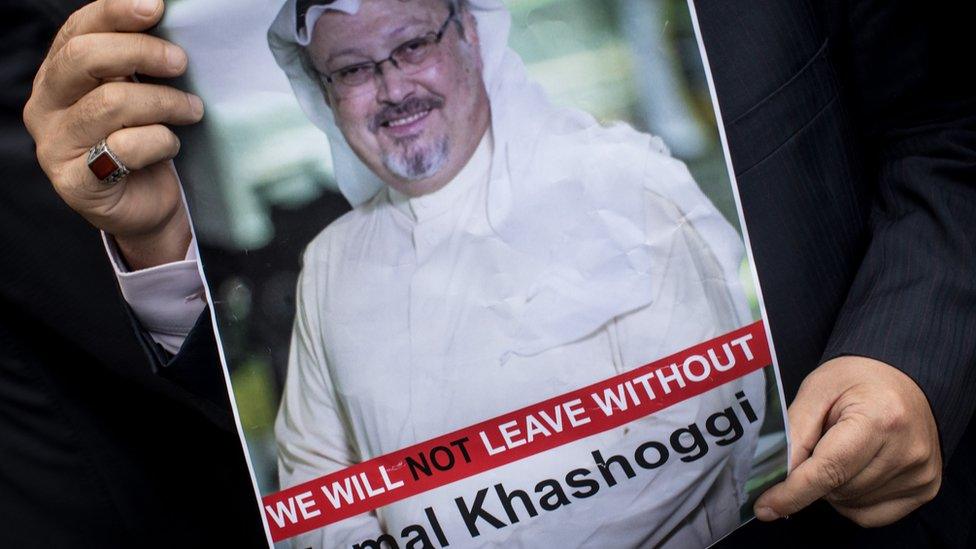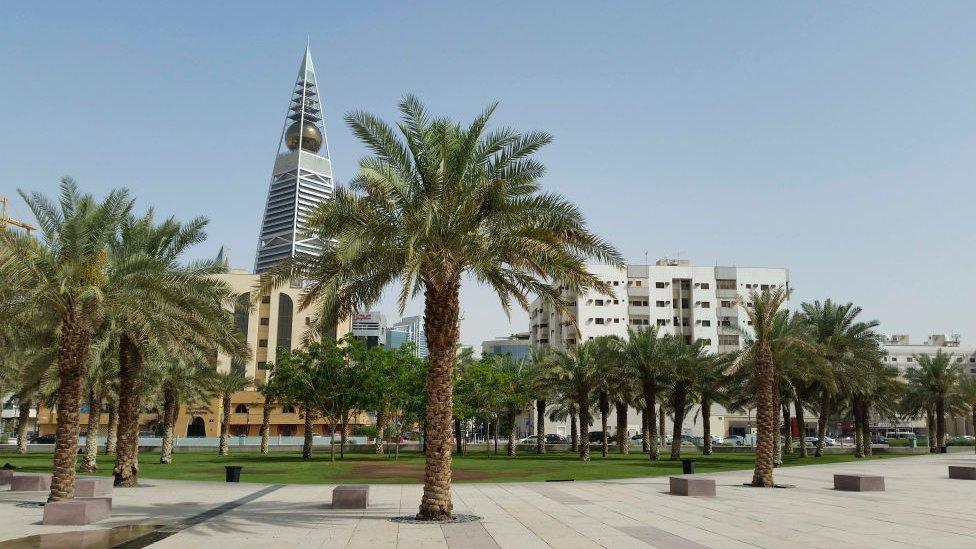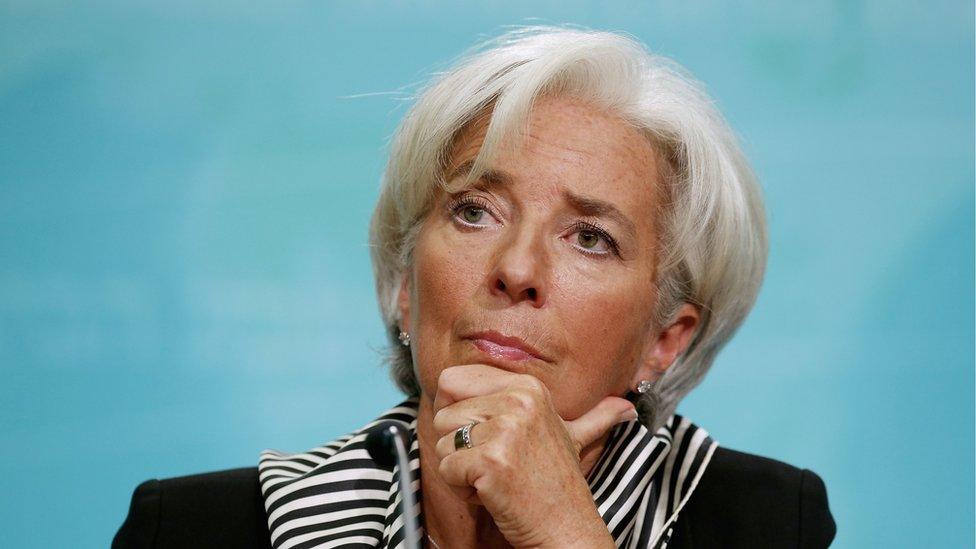Jamal Khashoggi death: Trump 'not satisfied' with Saudi account
- Published
Jamal Khashoggi: What we know about the journalist's disappearance and death
US President Donald Trump says he is "not satisfied" with Saudi Arabia's account of the death of journalist Jamal Khashoggi.
On Friday, Saudi Arabia for the first time admitted that Mr Khashoggi was dead, saying he was killed in a "fist fight" in its Istanbul consulate.
But that explanation has met with scepticism.
Turkish officials believe Mr Khashoggi - a critic of the Saudi government - was murdered and his body dismembered.
"I'm not satisfied until we find the answer," Mr Trump said, adding that sanctions were a possibility, but that halting an arms deal would "hurt us more than it would hurt them".
Mr Trump said it was "possible" that the powerful Saudi Crown Prince Mohammed bin Salman did not know about the killing.
Until Friday, Saudi Arabia had denied knowledge of his whereabouts and insisted he had left the building alive.
Turkey has vowed to reveal all details about how Mr Khashoggi was killed.
Publicly Turkey has so far stopped short of blaming Saudi Arabia for the killing. Turkish investigators, however, say they have audio and video evidence which shows Mr Khashoggi was killed by a team of Saudi agents inside the consulate.
Police have been searching the consulate, the consul's residence, as well as a nearby forest, where officials believe his body may have been disposed of.
What is Saudi Arabia's version of events?
The kingdom said a fight broke out between Mr Khashoggi, who had fallen out of favour with the Saudi government, and people who met him in the consulate - ending with his death.
It says investigations are under way, and so far 18 Saudi nationals have been arrested.
Unnamed officials speaking to Reuters news agency and the New York Times say the Saudis did not know the whereabouts of the body after it was handed to a "local collaborator" to dispose of.
CCTV footage shows missing Saudi journalist Jamal Khashoggi entering the Saudi consulate in Istanbul
In addition to the arrests, two senior officials have been sacked over the affair - deputy intelligence chief Ahmad al-Assiri and Saud al-Qahtani, senior aide to Crown Prince Mohammed Bin Salman.
The Saudi authorities have yet to give evidence to support this version of events.
How have others responded?
Even allies of Saudi Arabia have criticised its account.
German Chancellor Angela Merkel called the explanation of Mr Khashoggi's death "inadequate" while French Foreign Minister Jean-Yves Le Drian said many questions "remain unanswered".
The UK Foreign Office described it as "a terrible act" and said the people behind the killing "must be held to account".
Both the EU and the UN have called for a proper investigation.
A number of US lawmakers, including a Republican highly critical of the Saudis, Senator Lindsey Graham, said they were sceptical about the report on the journalist's death.
Allow X content?
This article contains content provided by X. We ask for your permission before anything is loaded, as they may be using cookies and other technologies. You may want to read X’s cookie policy, external and privacy policy, external before accepting. To view this content choose ‘accept and continue’.

Australia announced it is withdrawing from an investment summit in Saudi Arabia later this month - joining a growing boycott that includes the US, UK, Dutch and French finance ministers over the Khashoggi killing.
Mr Khashoggi's fiancée, Hatice Cengiz, questioned in a tweet what had happened to his body, saying: "The heart grieves, the eye tears, and with your separation we are saddened, my dear Jamal."
The Washington Post, for which Mr Khashoggi was a contributor, has released a previously unheard interview he gave to Karen Attiah, external, the Global Opinions editor.
In it he said: "Our leaders see themselves as leaders who know best, and people like me...are just hindering the process for their reform."
- Published22 October 2018

- Published19 October 2018

- Published18 October 2018

- Published17 October 2018
